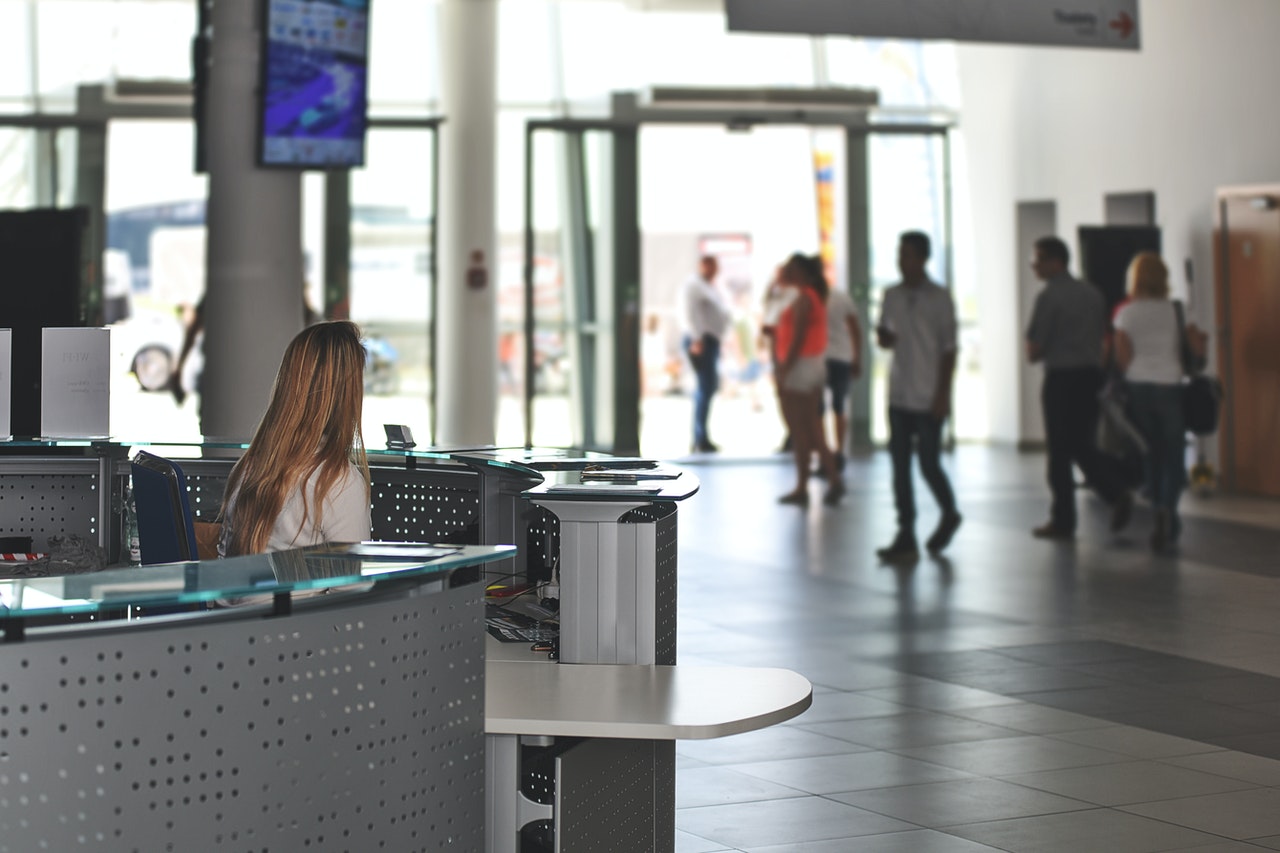What the future of remote work means for you
Published

Remote work is changing. As technological progress progresses, new opportunities to work from any location are emerging every day. But what does that mean for you?
There was a time when telecommuting was reserved for salespeople who could work from the phone or computer while visiting customers on the go. Ah, the business trip. This wasn't always a glamorous situation or work environment. The sales representative in question was able to use his phone and computer and work from hotel rooms around the world while completing his to-do list, even when his schedule was full with customer dinners and sales meetings. At the end of the trip, they were expected to return to their office and return to the typical 9-5 grind.
Telecommuting was not viewed as a reward or a means to increase employee satisfaction, but rather as a means to increase efficiency and productivity because travel was part of the job description.
It should come as no surprise that this concept of telecommuting, like the rest of our society's long-standing conventions, is outdated. In fact, most people don't even call it telecommuting anymore.
Familiarize yourself with the new term: telecommuting. Here's our definition: Remote work is a work style that allows professionals to work outside of a traditional office environment.
This is similar to telecommuting, isn't it? While the principle is similar, instead of thinking that working outside the office is a necessity for efficiency, telecommuting takes it a step further. She encourages companies to change their perspective and believe that giving their employees the opportunity to work outside of a traditional environment is actually better for their company.
While adopting telecommuting was something of a leap into the deep end of flexibility for a company, telecommuting is more of a plunge into the deep end, or better yet, a plunge into the deep end. Even the idea that "great work can be done from anywhere" doesn't quite capture the direction in which telecommuting is evolving. The truth is that the future of remote work and its potential impact is much broader.
Remote work is no longer just a peripheral work style. It is the necessary next step for companies, workers and entrepreneurs who want to continue to benefit from the productivity and efficiency that technological advances offer our society.
How is remote work changing?
Remote work is no longer an exclusive endeavor as people from all walks of life embrace and utilize their newfound freedom. They are living a life they never imagined possible when they imagined sitting at a desk from 9 a.m. to 5 p.m. every weekday for the rest of their lives. Technology and the proliferation of high-speed Wi-Fi in almost every corner of the world have made remote work a viable option for more people, in more areas than ever before.
Here's how teleworking is changing:
More and more people are working remotely
When people started embracing the idea of remote work, they were promised the kind of flexibility and freedom that would immediately make them happier. But things didn't turn out quite as expected.
Since the concept of telecommuting was still relatively new, there were still very few people who could lead a flexible lifestyle. The first employees to try telecommuting sometimes felt like they were on an island, working from home and sometimes not speaking to another person for an entire day. In those moments, it felt like the flexible working movement wasn't really going to take off. Sometimes you just felt lonely.
Good news for all aspiring teleworkers: things are different now.
A study conducted by Zug has shown that 70% of working people worldwide work remotely at least once a week - and they don't do it alone. The future looks even brighter: IDC expects 75% of the U.S. workforce to work remotely by 2020, according to a Zinc survey.
People work remotely in different ways
Not only are more people working remotely than ever before, they are doing so in ways we would not have thought possible just a few decades ago. The days when telecommuting was the only option for aspiring remote workers may be over. Today, many professionals have the opportunity to work wherever they feel most productive - even at home.
Another such place is a coworking space. The advancement of communications technology and the associated expansion of telecommuting around the world has inspired innovative companies to create easily accessible coworking spaces where remote workers from a variety of industries can work side by side.
Another route for remote workers is a combination of work and travel. Given the opportunity to work outside of their office, some professionals are using their newfound flexibility to travel the world. Whether they are traveling alone or participating in a work and travel program, they use their new surroundings as inspiration for their work. During their chosen working hours, they seek out cafés and coworking spaces with good Wi-Fi where they can get to work. When they're not working, they have the opportunity to explore the stunning world around them and immerse themselves in the local culture in a way not possible on a week-long vacation.
Others take a more local approach. They opt for a hybrid form of remote work, where they work part of the week in coworking spaces in their company's city and can focus on projects that require the intense concentration that working in solitude offers.
With so many options available to today's workers, it's no wonder many of them are ditching their fixed office desk to find more flexibility in their everyday lives - and they're not the only ones warm to this idea.
Companies have changed their minds about telecommuting
When telecommuting took off, companies weren't so quick to jump on the bandwagon. They feared that their co-workers would become careless, distracted by their home environment, become more difficult to communicate with, and even become unhappy due to isolation.
Large companies' opinions on telecommuting are evolving alongside technological advances.
Companies like Trello, Doist, Meet Edgar and, yes, even Remote Year have become remote-only companies with employees working in different time zones around the world. These companies believe in the many benefits of telecommuting - and their many successes are proof that a flexible work style can have a positive impact on creativity and productivity.
Even more established companies like Wells Fargo, Humana, Dell, and Intuit have begun offering remote work opportunities in their job postings, largely due to demand for remote work from top candidates around the world.
"More and more...applicants are requesting remote work as a condition of employment," said Liz Roney, business owner and executive coach at The Leadership Coaching Group, in an interview with Business News Daily. "Failure to consider this option could leave you unable to attract key employees. To make matters worse, the top candidates you miss out on may go to your competitors who are hiring remotely offer."
Once companies embrace remote work, they will see the benefits. Happy employees who work when they are productive and pursue their passions in their free time can actually increase an employer's bottom line. Companies see an increase in employee productivity when they give them the opportunity to work remotely, regardless of industry.
More and more industries have jobs that can be done remotely
You might be thinking, "That all sounds great, but that would never work for me." Maybe you think about the industry you're in and are sure you can't work remotely in the same way as tech professionals and entrepreneurs. You are sure that remote work is out of reach for you, even though it is becoming increasingly popular.
Luckily, you're probably wrong.
Remote work is becoming increasingly common in industries where technology is already fully utilized, but with persistence, professionals in more and more fields are finding ways to successfully become remote. They creatively shift tasks to work outside the office, sometimes even creating new positions for themselves within their company. Whether motivated by the opportunity to spend more time with friends and family or by the idea of living life on their own terms, remote workers across industries are pushing for more flexibility.
What does that mean for me?
Long story short: the evolution of telecommuting means everything to you.
It means that it's more possible than ever to take back control of your life and let go of the idea that you have to be stationary to be successful.
You've known for some time that there's more to life than working your way up the career ladder. You had the urge to break out of the monotony of society's version of the "good life" and pursue your wildest dreams. We're telling you that in today's world, you can have your cake and eat it too.








